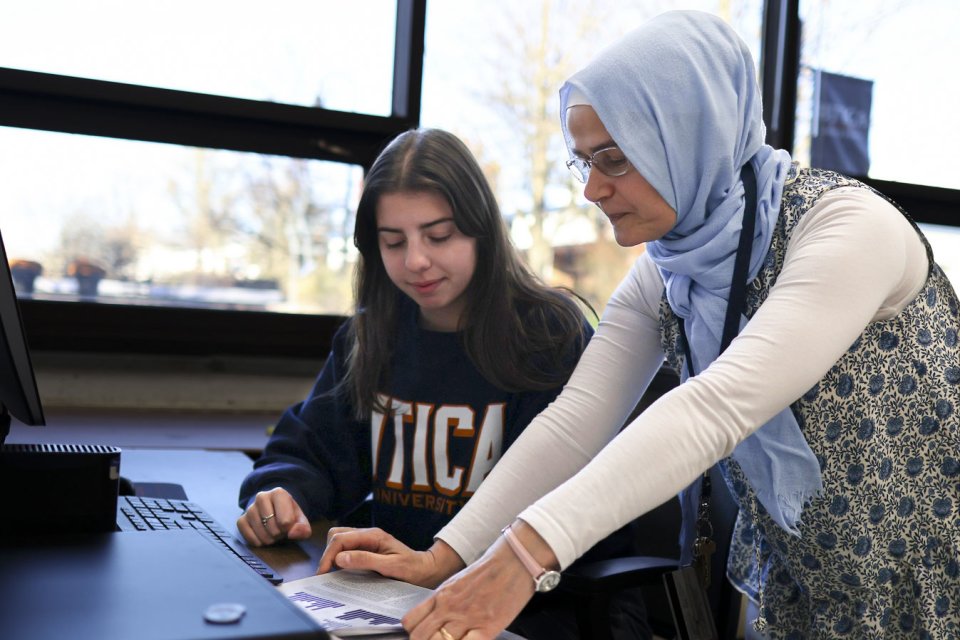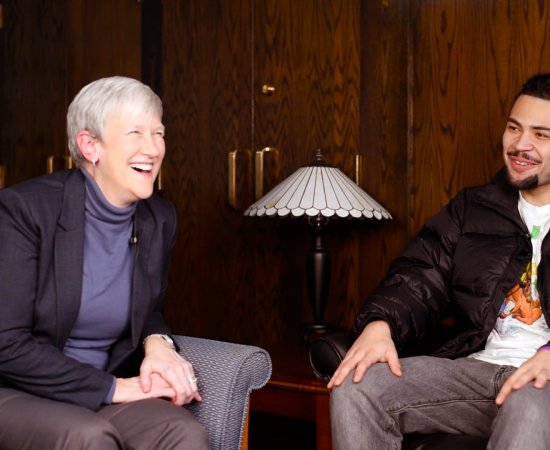
National Science Foundation grant to help Physics Professor Dr. Hava Turkakin navigate stormy weather of space

“From GPS navigation to power grids, from aviation safety to protecting astronauts in space - solar particles from the Sun can cause serious disruptions.”
Sometimes all it takes is a spot of bad weather to impact your day. But well above and beyond the rainy day clouds in our atmosphere rage powerful forces of Space Weather, whose energy can impact our Earth in ways we may not have once imagined.
Dr. Hava Turkakin and her students hope to understand better just how much these storms in space influence everything from our weather to our satellites in orbit. That research is set to grow thanks to a grant from the National Science Foundation.
“What makes Space Weather so fascinating is that, it’s the perfect blend of mystery and impact - something that seems far away, yet affects our daily lives in ways most people don’t even realize,” Dr. Turkakin explains.
Solar eruptions are powerful bursts of particles and energy from the Sun that travel through our solar system as solar wind. When these streams reach Earth, they can cause major disturbances in our planet’s magnetosphere—the protective shield created by Earth’s magnetic field—and even the upper atmosphere.
These dynamic solar conditions, known as Space Weather, can wreak havoc on satellites, GPS systems, airline routes, and even ground-based power infrastructure. That’s why organizations like NASA and NOAA closely monitor solar activity to help predict and mitigate its impact.
“From GPS navigation to power grids, from aviation safety to protecting astronauts in space - solar particles from the Sun can cause serious disruptions,” says Dr. Turkakin. “That’s why studying Space Weather isn’t just interesting - it’s essential. Take GPS for example: to keep it working seamlessly, we need to understand how solar particles interact with satellites.”
The research helps protect existing systems and design more resilient technologies for the future.
“Space Weather sits at the intersection of astrophysics, technology, and real-world impact—and that’s what makes it one of the most exciting areas in science today!”
Dr. Turkakin’s research dives into a fascinating piece of this puzzle known as the Kelvin–Helmholtz Instability.
“It’s a phenomenon that occurs during space weather events and helps transfer solar wind energy toward Earth,” she explains. “By understanding how this instability amplifies solar energy transfer, we can better predict and protect against the effects of space weather. In a world increasingly reliant on space-based technology, advancing our understanding of these processes is more crucial than ever.”
With a total award amount of $202,312 over the course of three years, the award will allow one undergraduate student and one high school student to be hired as summer research students each year throughout the duration of the grant, creating an exciting research opportunity for the physics students of Utica University, sparking curiosity and raising awareness about the critical role of Space Weather studies in the world today.
“Through high school outreach and mentoring student researchers, my goal is to extend the reach of this work across the greater Utica area—inspiring the next generation of scientists and attracting motivated, high-achieving students to join our vibrant academic community at Utica University. It’s an exciting time to be involved in space science—and even more exciting to share it with future trailblazers!”
The National Science Foundation (NSF) is an independent U.S. federal agency that supports fundamental research and education across all fields of science, technology, engineering, and mathematics (STEM). With a mission to promote the progress of science and advance national health, prosperity, and welfare, NSF funds cutting-edge research, fosters innovation, and helps shape the future of scientific discovery in the United States.
More Stories


Women’s Sports Receive More Primetime Broadcast Olympic Coverage Than Men’s Sports For The Sixth Olympiad In A Row, Seventh Overall

Introducing Campus Catch-Up
I would like to see logins and resources for:
For a general list of frequently used logins, you can also visit our logins page.
